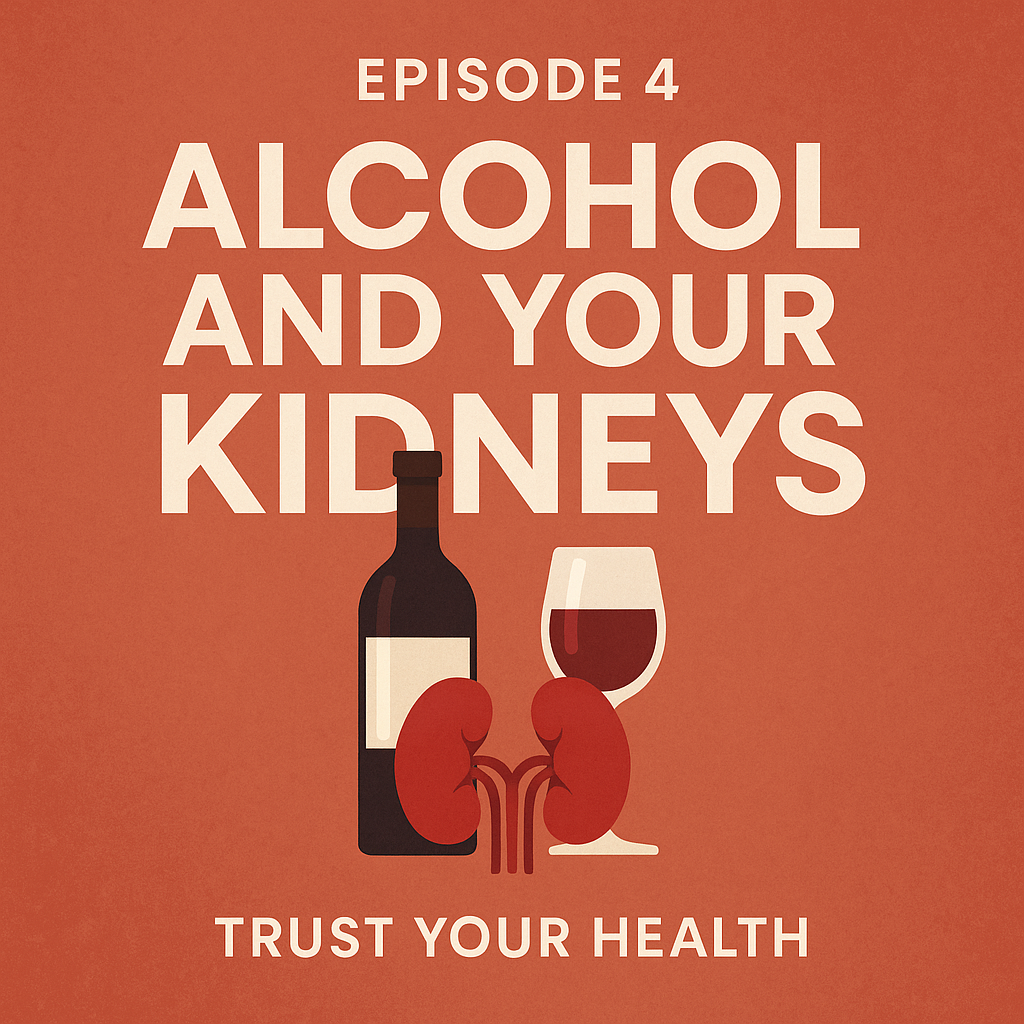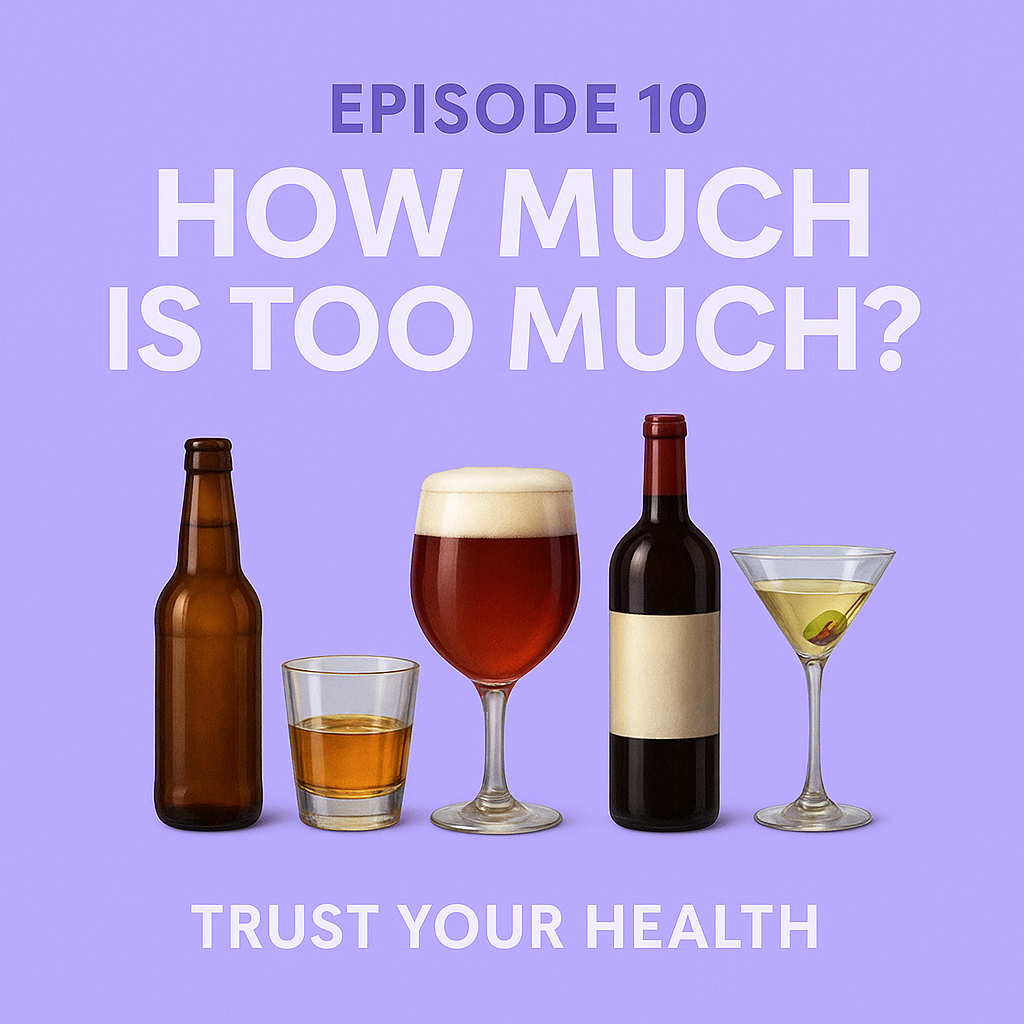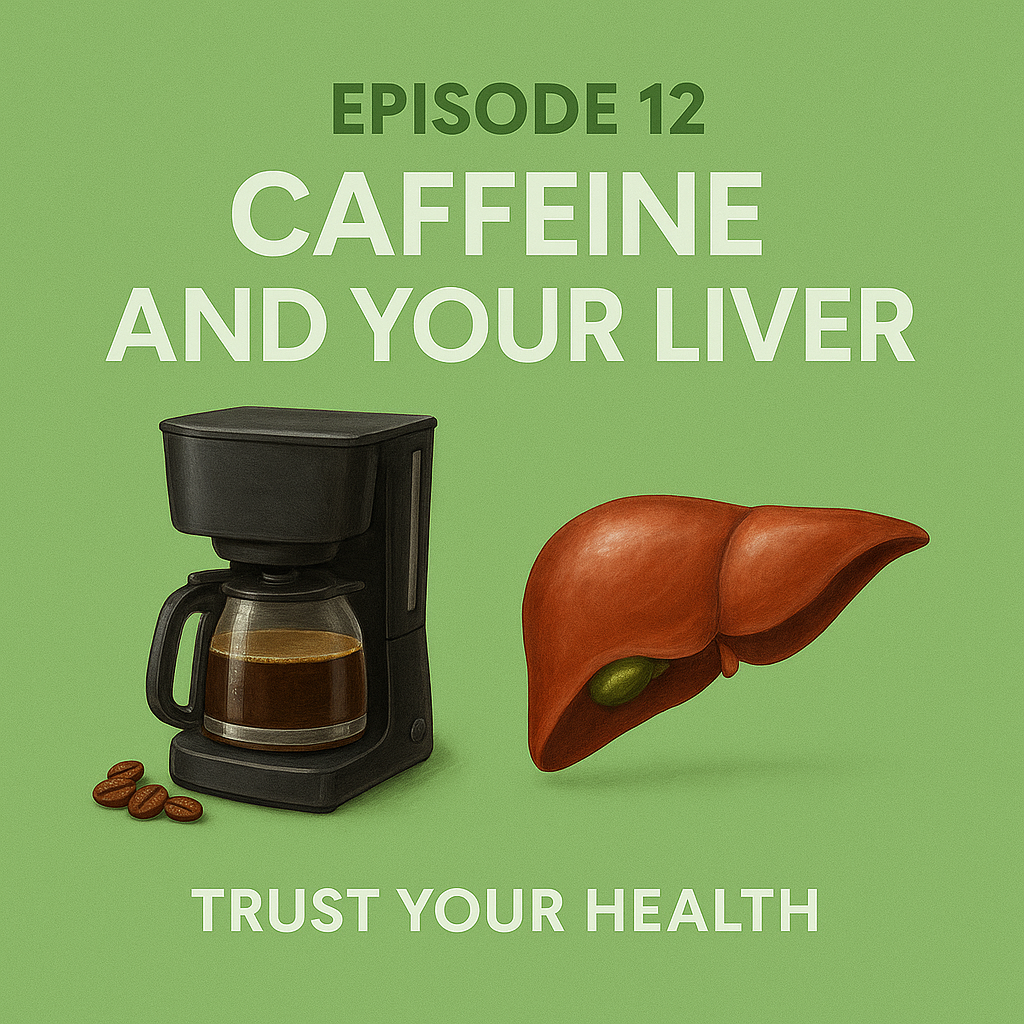Episode Transcript
Every morning, millions of people around the world wake up and reach for one thing: caffeine.
Coffee, tea, energy drinks — caffeine is everywhere. It helps us wake up, feel alert, focus, and power through long days.
But what if the same substance you depend on every day is also holding you back?
In this episode of Trust Your Health, we’re kicking off a new series on caffeine — looking at why we rely on it, and why it may be time to rethink the relationship.
Let’s start with what caffeine actually does.
Caffeine works by blocking a chemical in your brain called adenosine, which builds up during the day and makes you feel tired. When caffeine blocks adenosine, you feel more awake — even though your body is still tired underneath.
Caffeine also triggers adrenaline, your body’s fight-or-flight hormone. That can make you feel sharp and energized — at least for a while.
But here’s the problem: caffeine doesn’t give you energy. It just masks your fatigue.
And when it wears off, all that fatigue catches up — leaving you with the dreaded crash.
Over time, your body also builds tolerance. The same cup of coffee that used to wake you up barely makes a difference anymore. So you drink more. And more. Until caffeine becomes less of a boost, and more of a crutch.
Caffeine can also interfere with your sleep — even if you don’t drink it at night. Research shows that having caffeine even 6 to 8 hours before bed can shorten your deep sleep and leave you feeling groggy in the morning — which makes you reach for even more caffeine.
And by constantly covering up your body’s natural signals — like fatigue, stress, and burnout — caffeine can make it harder to know when you’re pushing yourself too far.
So here’s the question: are you using caffeine as a tool — or letting it use you?
If you feel like you can’t function without it, if you’re sleeping poorly, feeling anxious, or needing more and more just to get through the day — that’s your body asking you to rethink.
In this series, we’ll break down exactly what caffeine does to each of your major organs — your liver, your gut, your kidneys, your brain, your heart, your pancreas, your immune system, and even your reproductive health.
And when it’s all said and done, we’ll help you decide: should you quit caffeine — or just use it smarter?
Thanks for listening to Trust Your Health. Because trusting your health begins by understanding your body.
Be sure to follow the podcast so whenever you need clear, honest advice about your body, we’ll be here to help you make sense of it.


